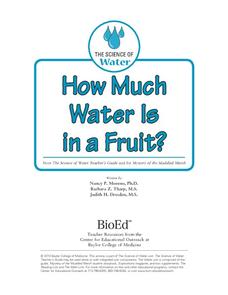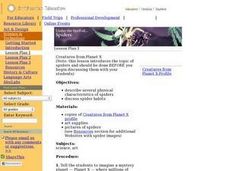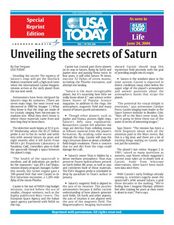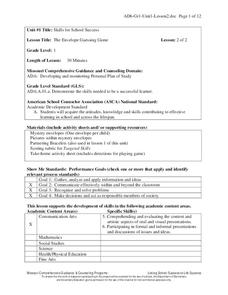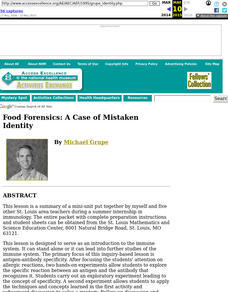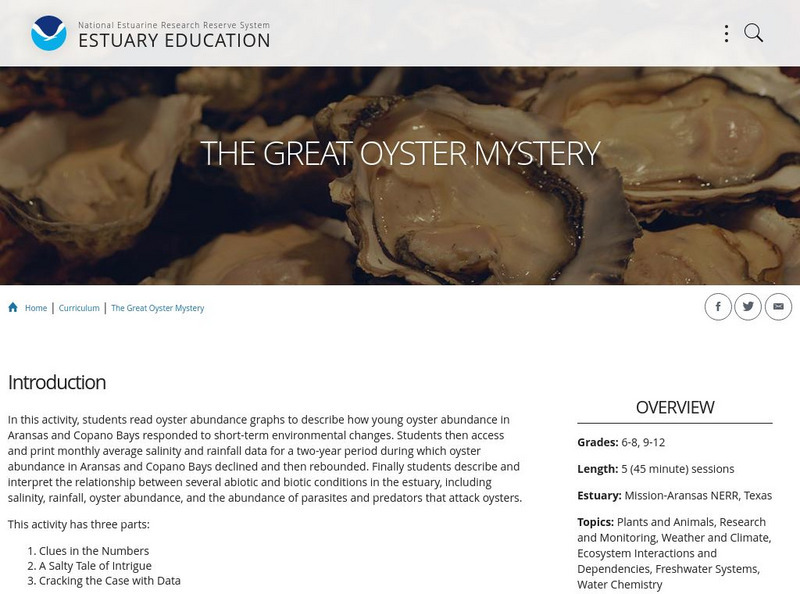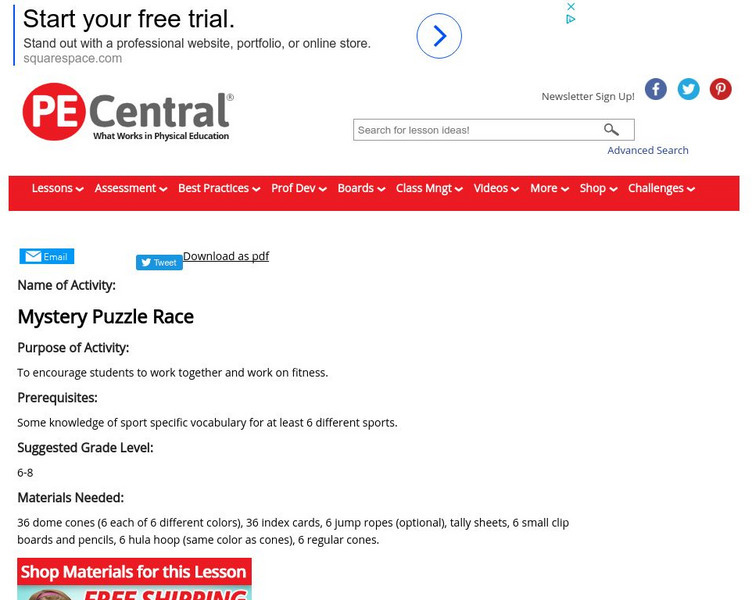Baylor College
What Is a One Part Per Million Solution?
Water may appear to be crystal clear, but there could be dissolved substances present. Lab groups make a one-part-per-million of a food coloring solution to demonstrate this concept. As part of an outstanding unit about water, this...
Baylor College
How Can We Find Out What Is in Water?
Using paper chromatography, water watchers discover that several substances might be dissolved even though they aren't visible. In this case, you will prepare a mixture of three different food colorings for them to experiment with. A...
Baylor College
Why Is Water Important? Pre-assessment
This water worksheet is just the tip of the iceberg! It a multiple-choice quiz meant to be a pre-assessment for a wonderful water unit. There are 10 questions to be answered regarding the role, properties, and behavior of water. Make...
Baylor College
How Much Water Is in a Fruit?
Compare the volume of an orange to the volume of liquid that can be extracted out of it. Also compare the mass of an apple before and after it has been dried out. In both of these activities, children find that there is an appreciable...
Baylor College
How Much Water Do Humans Need?
Physical or life science learners measure the amounts of water eliminated by intestines and the urinary system, and the amounts lost via respiration and perspiration. In doing so, they discover that the body's water must be replenished...
Curated OER
Creatures from Planet X: Spiders
Young scholars are given a description of some fascinating animals from "Planet X". They follow the descriptions given to illustrate one of these animals paying careful attention to introduced vocabulary such as 'appendages',...
Curated OER
Unveiling the Secrets of Saturn
Students read and study an article then answer questions on Saturn. In this investigative lesson students identify ways space exploration has helped humanity and then they search the Internet for space pictures and sketch a drawing...
Curated OER
The Learning Book
Students make a "Learning Book" with the skills needed to be a successful learning in school. They review basic learning skills by making a book and singing "The Learning Song". They demonstrate skills needed to be a successful learner.
Curated OER
Literacy Lesson: Guided Reading
Here is a wonderful lesson designed for students with special needs. This well-thought-out lesson uses Big Books, familiar stories, and has a lot of review learning built into it. The book, The Keeping Quilt is used in the main part of...
Curated OER
Personal Narrative Paragraphs: Class Quilt
Begin this activity by asking third graders to bring from home pieces of cloth that represent something important to them. (Have extras for students who need them.) They reflect on important events in their lives, compose narrative...
Curated OER
How to Write an Essay: Secondary ed.
Whether introducing the structure of expository essays or reviewing the format with your high schoolers, take the time to check out this resource. Examples of seven common forms of introductory paragraphs and six types of conclusions, as...
Curated OER
Food Forensics: A Case of Mistaken Identity
Ninth graders explore the specific reaction between an antigen and the antibody that recognizes it. They carry out an exploratory experiment leading to the concept of specificity.
Curated OER
Congressional Scenarios
In this U.S. government worksheet, pupils read 12 scenarios pertaining to government intervention and determine what to do as lawmakers in response to each of the scenarios.
Curated OER
Science: Testing Water for Toxicity
Students investigate the potential toxicity of water samples using California blackworms to test water quality. They observe the worms' behaviors in different water samples and determine which sample has the highest toxicity. At the...
Curated OER
Watch Over Wild Wanders
Young scholars collect and organize data relating to migratory species and habitats; undertake a habitat action plan, then maintain planting and building projects for continuing benefit to wildlife; understand the unique needs of...
Curated OER
Insects
Pupils work in groups to investigate the concept of insects. They participate in a variety of activities that include the gathering of samples and making observations like identifying different body parts. The activity integrates...
NOAA
Noaa: Estuaries 101 Curriculum: The Great Oyster Mystery
Like a canary in a coal mine, oyster health and oyster abundance can tell us about changing conditions in an estuary.
PE Central
Pe Central: Mystery Puzzle Race
Young scholars work in teams to complete physical tasks and, in the process, solve a sports- or health-related puzzle. Modify this activity to make it more challenging or to meet the needs of students with disabilities.





